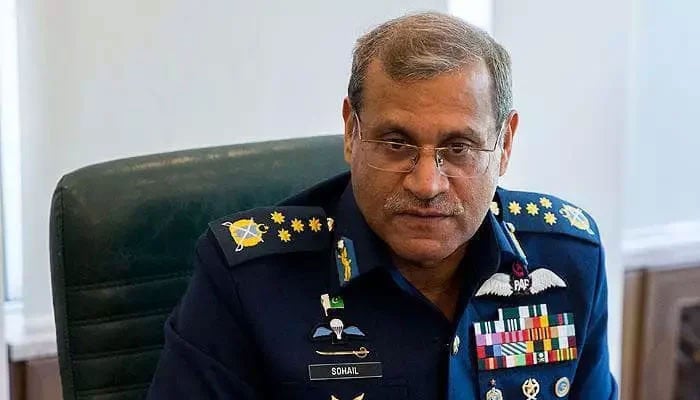ISLAMABAD: Former air chief Sohail Aman has said that a dangerous disconnect persists between the global quest for peace and India’s active pursuit of conflict with Pakistan.
He warned that it would be fundamentally wrong for anyone to assume that Pakistan would not respond to provocations or military aggression from India.
Addressing the Thought Leaders Forum (TLF) under the auspices of ISSI on Wednesday, Sohail recalled that “Marka-e-Haq” and Operation Bunyan-um-Marsoos had marked a fundamental transformation towards multi-domain warfare, where Pakistan innovatively employed air power alongside precision strikes and cyber disruption.
He stressed that India’s misperception — that Pakistan would not respond — was reckless and had been firmly dispelled by Pakistan’s robust military and national response. He rejected India’s false narrative of having confronted a joint China-Pakistan force, describing it as a face-saving measure.
According to him, a technologically advanced and operationally superior Pakistan Air Force (PAF) had decisively outperformed its numerically larger Indian counterpart.
While acknowledging that nuclear deterrence held during the crisis, Sohail cautioned against India’s misguided belief that there is space for a limited conventional war under the nuclear threshold. He warned that although a nuclear exchange remains unlikely, the risk of uncontrolled escalation cannot be ruled out. He underscored that it was therefore essential to ensure Pakistan’s clearly defined red lines are not crossed. He concluded that the region’s future peace depends on dialogue, diplomacy, and the resolution of disputes such as Kashmir, along with prioritising economic development, stability, trade, and connectivity.
Former foreign secretary and DG ISSI Ambassador Sohail Mahmood described “Marka-e-Haq” as the latest manifestation of Pakistan’s resolute defence against Indian aggression, during which the armed forces, with the united backing of the nation, had thwarted India’s reprehensible designs and successfully defended the country’s sovereignty and territorial integrity.
He said the crisis was triggered by the BJP regime, driven by a toxic mix of Hindutva ideology, electoral calculations, presumptions of military and technological superiority, misguided war-fighting doctrines, quest for regional hegemony, and hubris. Ambassador Sohail underlined that throughout the crisis and the actual conflict in May 2025, Pakistan had prevailed across all key domains — diplomatic, military, and informational — with the PAF demonstrating its prowess in what has been termed the largest air battle in history, downing at least six Indian fighter jets.
Pakistan’s calibrated response, Operation Bunyan-um-Marsoos, had represented a decisive shift towards integrated multi-domain warfare by combining drone operations, precision strikes, cyber disruption, and joint command and control.
Ambassador Sohail Mahmood cautioned, however, that the situation remains fragile as India maintains that there is only a pause and that Operation Sindoor continues in different forms. He warned of the dangers in India’s belief in limited conventional war under the nuclear threshold, stressing that for strategic stability, India must be disabused of this false notion.
